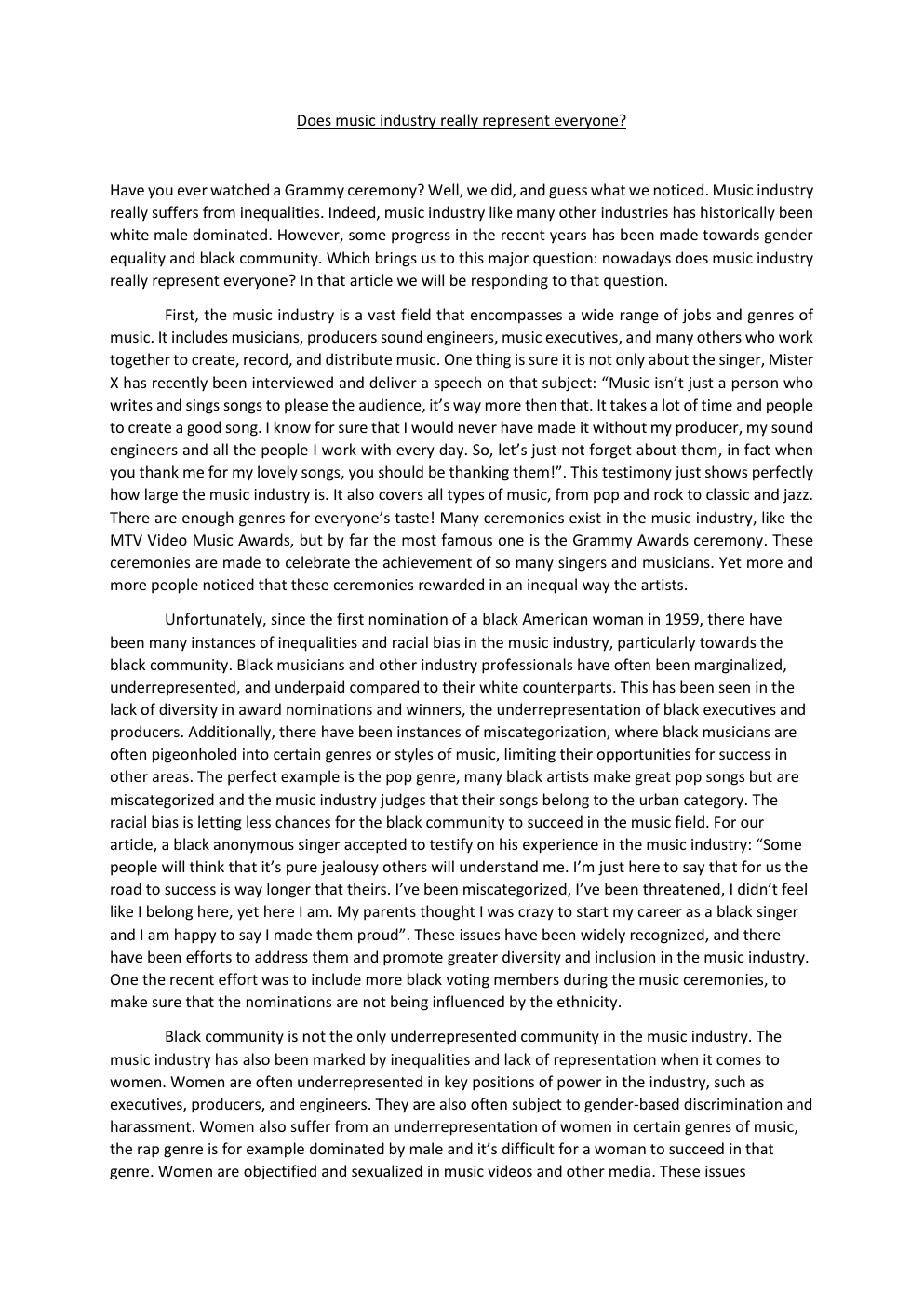Does music industry really represent everyone?
Publié le 15/05/2024
Extrait du document
«
Does music industry really represent everyone?
Have you ever watched a Grammy ceremony? Well, we did, and guess what we noticed.
Music industry
really suffers from inequalities.
Indeed, music industry like many other industries has historically been
white male dominated.
However, some progress in the recent years has been made towards gender
equality and black community.
Which brings us to this major question: nowadays does music industry
really represent everyone? In that article we will be responding to that question.
First, the music industry is a vast field that encompasses a wide range of jobs and genres of
music.
It includes musicians, producers sound engineers, music executives, and many others who work
together to create, record, and distribute music.
One thing is sure it is not only about the singer, Mister
X has recently been interviewed and deliver a speech on that subject: “Music isn’t just a person who
writes and sings songs to please the audience, it’s way more then that.
It takes a lot of time and people
to create a good song.
I know for sure that I would never have made it without my producer, my sound
engineers and all the people I work with every day.
So, let’s just not forget about them, in fact when
you thank me for my lovely songs, you should be thanking them!”.
This testimony just shows perfectly
how large the music industry is.
It also covers all types of music, from pop and rock to classic and jazz.
There are enough genres for everyone’s taste! Many ceremonies exist in the music industry, like the
MTV Video Music Awards, but by far the most famous one is the Grammy Awards ceremony.
These
ceremonies are made to celebrate the achievement of so many singers and musicians.
Yet more and
more people noticed that these ceremonies rewarded in an inequal way the artists.
Unfortunately, since the first nomination of a black American woman in 1959, there have
been many instances of inequalities and racial bias in the music industry, particularly towards the
black community.
Black musicians and other industry professionals have often been marginalized,
underrepresented, and underpaid compared to their white counterparts.
This has been seen in the
lack of diversity in award nominations and winners, the underrepresentation of black executives and
producers.
Additionally, there have been instances of miscategorization, where black musicians are
often pigeonholed into certain genres or styles of music, limiting their opportunities for success in
other areas.
The perfect example is the pop genre, many black artists make great pop songs but are
miscategorized and the music industry judges that their songs belong to the urban category.
The
racial bias is letting less chances for the black community to succeed in the music field.
For our
article, a black anonymous singer accepted to testify on his experience in the music industry: “Some
people will think that it’s pure jealousy others will understand me.
I’m just here to say that for us the
road to success....
»
↓↓↓ APERÇU DU DOCUMENT ↓↓↓
Liens utiles
- does the end justifies the means
- Oral AMC : How does social media impact American society ?
- world-music.
- music-hall.
- To what extent are music festivals political ?


